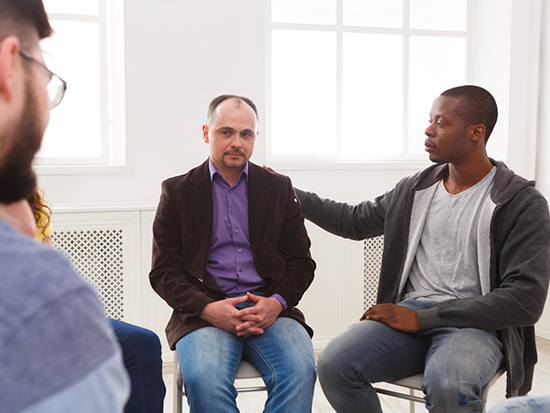 While friends or family members may feel helpless if someone they know suffers from addiction, one UAB physician says hope can start at home.According to the National Center for Health Statistics, more than 72,000 drug overdose deaths are estimated to have occurred in 2017, with the sharpest increase among those related to fentanyl and synthetic opioids.
While friends or family members may feel helpless if someone they know suffers from addiction, one UAB physician says hope can start at home.According to the National Center for Health Statistics, more than 72,000 drug overdose deaths are estimated to have occurred in 2017, with the sharpest increase among those related to fentanyl and synthetic opioids.
Opioid- and addiction-related deaths continue to increase as physicians and government agencies try to tackle the problem. While friends and family members may feel helpless if someone they know suffers from addiction, addiction specialist Stefan Kertesz, M.D., professor in the Division of Preventive Medicine at the University of Alabama at Birmingham, says there is a ray of hope, and it can start at home.
“One thing we can all do as individuals is recognize that anyone can help prevent addiction, even if we aren’t physicians,” he said.
Kertesz detailed five ways anyone can help prevent addiction and help those in need.
- For youth, schools and social organizations can offer skills-based programs. “These programs should provide youth with rewarding activities that offer recognition, support and fun,” Kertesz said. “Scout leaders and coaches are, effectively, helping to prevent drug use, whether they know it or not.”
- Kertesz says health care environments should still offer opioid painkillers for major procedures, but with careful conversations about risk with people who have a history of substance use disorder. And they should use caution with youth. “You should demand conversations about those concerns, if your doctor or nurse doesn’t raise the topic,” Kertesz said.
- Many with addiction will remit on their own, and those cases are usually less severe; but all need access to treatment. “Treatment must include the offer of evidence-based medications if those apply, as is the case for addictions involving opioids and alcohol. Recovery takes many paths, and many need social, psychological and medical help in abundance,” he said.
- “If your loved one uses substances, make clear how much it matters to you and why you need them not to,” Kertesz said. “Keep your boundaries clear, especially with regard to money, space and emotional bandwidth.”
Kertesz said people sometimes believe that caring for a person means “giving everything I have.” When that proves unsustainable, they give up entirely.
“When the people you care about are having addiction problems, staying engaged with them for the long run depends on being clear that you will not give up your sanity, your family’s well-being or your financial security,” he said. “You can’t help anyone if you feel as though you are about to crack in two.”
People with addictions routinely report that it was the concerns from their loved ones that spurred them to seek help.
“Beware that the aggressive confrontations you see on TV are not usually effective,” Kertesz said.
- “For people who have opioid use disorders and are ‘doing great’ now in recovery, it’s important to have the opioid reversal agent naloxone, just in case. Naloxone is a medication used to block the effects of opioids, especially in overdose. Anyone in Alabama can walk into a pharmacy and purchase it.”
If you or a loved one is suffering from addiction, The UAB Medicine Addiction Recovery Program offers an individualized approach to the assessment and treatment of alcohol and substance abuse. To learn more, visit the program’s official website.
In addition to his role as professor in the UAB Department of Medicine, Kertesz serves on the Implementation Committee for the Alabama Opioid Overdose and Addiction Council, with roles on two committees related to prescribing and dispensing opioids.